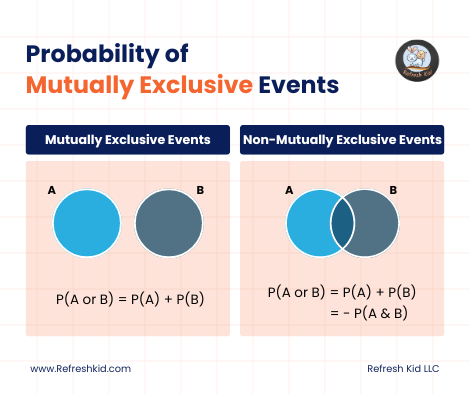PSAT / NMSQT Test Prep for High Schoolers
Welcome to our comprehensive guide on PSAT / NMSQT test prep for high schoolers. The Preliminary SAT/National Merit Scholarship Qualifying Test (PSAT/NMSQT) is a standardized exam taken by high school students in the United States. It serves as a precursor to the SAT and offers students the opportunity to qualify for the National Merit Scholarship Program. In this guide, we will explore various strategies, tips, and resources to help high schoolers prepare for the PSAT / NMSQT effectively.
PSAT / NMSQT Test Prep for High schoolers: Understanding the Basics
Before diving into the details of PSAT / NMSQT test prep, let's first understand the basics of the exam itself. The PSAT / NMSQT consists of sections that assess critical reading, writing, and math skills. It is designed to measure a student's readiness for college-level work and provide valuable feedback for improvement.
The Importance of PSAT / NMSQT Test Prep
Proper test preparation is crucial for high schoolers aiming to perform well on the PSAT / NMSQT. Here are some reasons why test prep is essential:
Maximizing Scholarship Opportunities:
High PSAT scores can lead to recognition and potential scholarship opportunities through the National Merit Scholarship Program.
Improving College Admissions Chances:
Strong PSAT scores can positively impact a student's college admissions profile, showcasing their academic abilities.
Building Test-Taking Skills:
Preparing for the PSAT / NMSQT helps students develop effective test-taking strategies and time management skills, which are transferable to other standardized tests.
Identifying Areas of Weakness:
Test prep allows students to identify their strengths and weaknesses, enabling focused study and improvement.
Key Content Areas
The PSAT / NMSQT primarily focuses on three key content areas:
Evidence-Based Reading: This section evaluates a student's ability to analyze passages, comprehend written material, and draw inferences from the text.
Writing and Language: This section tests grammar, usage, punctuation, and effective writing skills.
Mathematics: The math section assesses a student's knowledge of algebra, data analysis, problem-solving, and advanced math concepts.
Strategies for PSAT / NMSQT Test Prep
Now that we have covered the basics, let's delve into effective strategies for PSAT / NMSQT test prep. By following these strategies, high schoolers can enhance their chances of achieving strong scores.
1. Start Early and Plan Ahead
PSAT / NMSQT test prep should ideally commence several months before the actual exam date. Starting early allows for better organization and ample time for comprehensive study.
2. Familiarize Yourself with the Test Format
Become familiar with the structure and format of the PSAT / NMSQT. This includes understanding the number of sections, question types, time limits, and scoring system. Familiarity reduces anxiety and helps students strategize their approach.
3. Take Practice Tests
Practice tests are invaluable resources for PSAT / NMSQT preparation. They provide a realistic simulation of the actual exam and help students identify their strengths and weaknesses. Regularly taking practice tests allows for targeted improvement.
4. Focus on Weak Areas
Identify the areas where you struggle the most and devote extra time and effort to improving those skills. Whether it's reading comprehension, grammar, or math concepts, focused practice can lead to significant improvement.
5. Develop Effective Time Management Skills
Time management is crucial during the PSAT / NMSQT. Practice answering questions within the given time limits to ensure you can complete each section without rushing or leaving questions unanswered.
6. Utilize Online Resources and Study Materials
Leverage the abundance of online resources and study materials available for PSAT / NMSQT test prep. Websites, apps, and books offer practice questions, study guides, and interactive lessons to enhance your understanding of the test content.
7. Seek Guidance from Teachers and Mentors
Don't hesitate to reach out to your teachers, mentors, or tutors for additional support and guidance. They can provide personalized advice, review your progress, and offer valuable insights to help you succeed.
Frequently Asked Questions (FAQs)
Q: How long should I spend on PSAT / NMSQT test prep each day?
A: The time spent on test prep varies from student to student. Aim for at least 1-2 hours of focused study each day, gradually increasing as the exam date approaches.
Q: Are there any recommended books or study guides for PSAT / NMSQT prep?
A: Yes, several books and study guides are specifically designed for PSAT / NMSQT preparation. Some popular options include "The Official SAT Study Guide" by the College Board and "PSAT/NMSQT Prep 2023" by Kaplan.
Q: Should I take both the PSAT and SAT exams?
A: Yes, it is generally advisable to take both exams. The PSAT serves as excellent practice for the SAT and offers the opportunity to qualify for scholarships through the National Merit Scholarship Program.
Q: Can I use a calculator during the PSAT / NMSQT math section?
A: Yes, a calculator is allowed for a portion of the math section. However, some questions are designed to be answered without a calculator, so it's essential to practice both calculator and non-calculator techniques.
Q: How can I manage test anxiety during the PSAT / NMSQT?
A: Test anxiety is common but manageable. Practice relaxation techniques, such as deep breathing and positive visualization. Additionally, thorough preparation and familiarity with the test format can help alleviate anxiety.
Conclusion
Preparing for the PSAT / NMSQT is a crucial step in a high schooler's academic journey. By following the strategies outlined in this guide and utilizing the available resources, students can boost their confidence and increase their chances of achieving impressive scores. Remember, consistent practice, focused study, and strategic time management are key elements of successful PSAT / NMSQT test prep.








